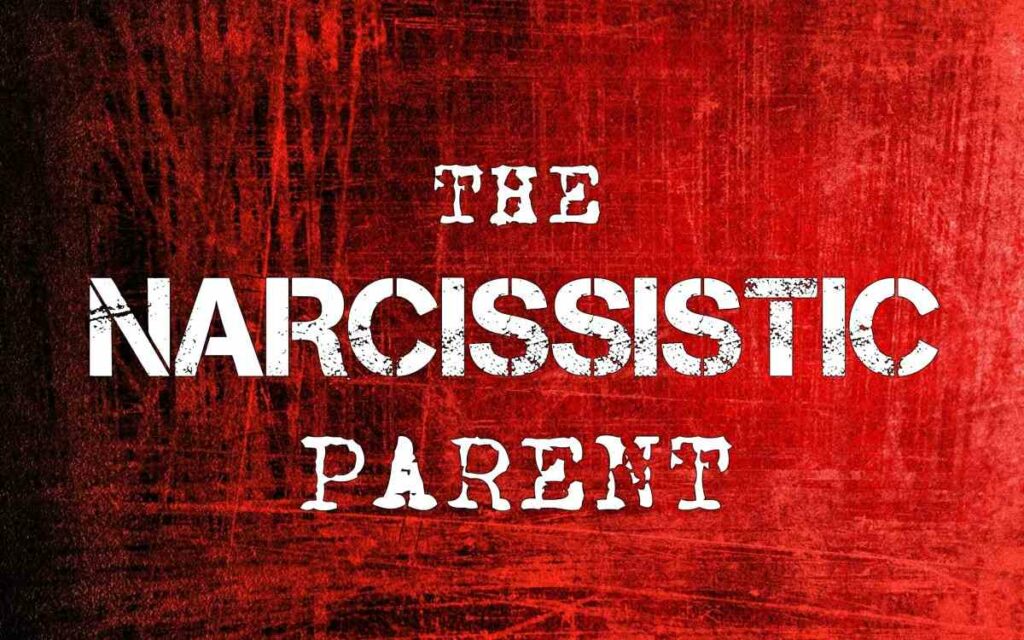Do you have a narcissistic parent? If so, you’re not alone. Many people have narcissistic parents, and it can be a difficult experience. Narcissistic parents are often self-centered and think they know everything. Dealing with a narcissistic parent can be very challenging. But there are things that you can do to improve your situation. In this blog post, here are 11 signs to help you identify a narcissistic parent. Also, will discuss ways to deal with them.
Contents
- 1 Narcissistic Parents
- 2 11 Signs To Identify Narcissistic Parents
- 2.1 Excessively Critical And Demanding
- 2.2 Lack Of Empathy
- 2.3 Grandiosity And Superiority
- 2.4 Created Superficial Image
- 2.5 Wants To Be Center Of Attention
- 2.6 Manipulative Nature
- 2.7 Narcissistic Parents Are Highly Rigid
- 2.8 Emotion Of Dependency
- 2.9 Extreme Jealousy And Possessiveness
- 2.10 Neglecting Approach
- 2.11 Highly Competitive
- 3 When To Get Help
- 4 Treatment For Narcissistic Parents
- 5 How To Deal With Narcissistic Parents
- 6 Conclusion
- 7 A Word From Therapy Mantra
Narcissistic Parents
 It is often said that children learn from their parents. If this is true, then what do children of narcissistic parents learn? They learn how to be narcissists themselves.
It is often said that children learn from their parents. If this is true, then what do children of narcissistic parents learn? They learn how to be narcissists themselves.
Narcissistic parents are defined as those who excessively admire. And brag about themselves to the point where it is considered abnormal. They are also known to have a sense of entitlement. They exploit others, have lack empathy. And be preoccupied with fantasies of power or success.
Children of narcissistic parents grow up in an environment. Where they are constantly bombarded with messages that they are not good enough. In order to survive, they learn to put up a false front that they are perfect. They learn how to manipulate and control others in order to get what they want.
11 Signs To Identify Narcissistic Parents
Largely, there are eleven key signs that can identify narcissistic parents. It’s important to be aware of these signals. As they can have a significant impact on both the parent-child relationship.
Excessively Critical And Demanding
Narcissistic parents are always excessively critical. And demanding of their children. They have very high expectations and standards. Those are often impossible to meet. The child is constantly left feeling inadequate, unworthy, and unloved.
The demands placed on the child can be physical, emotional, or even financial. The child is never given a break. And is always expected to perform at their highest level. This can lead to the child feeling anxious, stressed, and depressed.
Lack Of Empathy
These parents will never be able to see things from your point of view. And will never put themselves in your shoes. Even when you’re the one who is hurting, they will find a way to make it all about them.
They lack empathy because they’re so wrapped up in their own lives. And most of the time, they view you as an extension of themselves. So your success or failures are a reflection of them.
Grandiosity And Superiority
The parents think that they are better than everyone. They have a sense of entitlement and will often talk about their own achievements. Or things they have done in an attempt to make themselves look good.
The children of narcissistic parents may feel like they can never live up to their parent’s expectations. And maybe constantly put down as a result.
Created Superficial Image
Narcissistic parents often put a lot of effort into creating a false image for others to see. They may be very involved in their children’s lives. But it’s often only to project an idealized version of themselves. Their kids are often used as props to make them look good.
Wants To Be Center Of Attention
 The narcissistic parent wants to be the center of attention at all times. And will go out of their way for recognition. They’ll put on a show for anyone who is watching. Even if no one else is around. This need for approval can be quite draining for the child.
The narcissistic parent wants to be the center of attention at all times. And will go out of their way for recognition. They’ll put on a show for anyone who is watching. Even if no one else is around. This need for approval can be quite draining for the child.
Parents are seeking admiration and praise from their children. If the child does not give them what they want. They will become angry or withdraw their love. This can be very confusing and hurtful for the child.
Manipulative Nature
More often, than not, narcissistic parents are very manipulative. They will use guilt trips, silent treatments. And threats in order to get what they want. If you don’t do, as they say, they will make it known that they are disappointed in you. You may also find yourself constantly walking on eggshells around them. Because you never know when they might blow up for no reason at all.
If your parent is a narcissist, there’s a good chance that your childhood was anything but normal. Emotional abuse can be incredibly damaging and leave lasting scars.
Narcissistic Parents Are Highly Rigid
Certain narcissistic parents are highly rigid and demanding. They will often have strict rules that must be followed. Otherwise, there will be consequences. This can make it difficult for their children to live a normal, happy life.
And they will not tolerate any type of disobedience or criticism. If their child does not meet their high standards. They may react with anger, rage, or withdrawal.
Emotion Of Dependency
Narcissistic parents rely on their children to meet their emotional needs. The child is seen as a source of narcissistic supply. Which is anything that confirms the parents’ view of themselves as special and superior. The child’s role is to make the parent feel good about themselves. And the child learns to do this by catering to the parents’ every need. This can be very demanding and emotionally draining for the child.
A narcissist will often put their own feelings. And needs ahead of those of their children. Even, use them as pawns in games designed to get what they want. The child must always be careful not to upset or anger the parent. Or they may face retribution in the form of verbal abuse, physical violence.
Extreme Jealousy And Possessiveness
These parents often possess a feeling of extreme jealousy. They are also highly competitive. And often feel like they need to one-up other parents. This can manifest itself in a number of ways. Such as trying to buy their child the best toys or clothes. Or enroll them in the most prestigious schools.
This jealousy often extends to the children themselves. Narcissistic parents may be jealous of their child’s attention and love. They may try to sabotage relationships the child has with others.
Neglecting Approach
In some cases, narcissistic parents will neglect their children emotionally and physically. They might not be there for them when they need them the most. Or they might not provide them with the love and support they need. This can lead to a feeling of rejection. And abandonment in their children.
However, there are also cases where narcissistic parents can be very overbearing and suffocating. They might be constantly checking in on their children or trying to control them. This can make it difficult for the child to develop a sense of independence.
Highly Competitive
Narcissistic parents are often highly competitive people. They might compare their children to other kids or try to make them feel superior to others. They might also pressure their children to achieve unrealistic goals. These things can create a lot of stress and anxiety in their children.
Furthermore, narcissistic parents are often very critical. They may never be happy with anything their children do. And will constantly find fault in them. This can make the child feel like they can never please their parent. Whatever the children do, they feel wrong in that.
When To Get Help
 You should know when to get help in such cases. If the behavior of narcissistic parents is too much to handle. Or they are hurting you and your siblings emotionally. It is time to get help from professionals. Such cases when you need help are:
You should know when to get help in such cases. If the behavior of narcissistic parents is too much to handle. Or they are hurting you and your siblings emotionally. It is time to get help from professionals. Such cases when you need help are:
- When they use emotional manipulation to get what they want.
- Put their needs ahead of yours and your siblings.
- Make you feel like you can’t do anything right.
- Constantly criticize you and put you down.
- Are never satisfied.
- Use threats or intimidation to control you.
- Have an excessive need for admiration.
- Are often jealous of your accomplishments.
- Give little or no emotional support.
If you have experienced some these things. It is time to get help from a professional. Who can give you the tools you need to deal with narcissistic parents. Remember that it is not your fault that they are this way. And there is hope for change if they are willing to seek help.
Treatment For Narcissistic Parents
If you feel that you have been a victim of narcissistic abuse. It is important to seek professional help. A therapist can provide you with support and guidance. As you heal from the trauma of your childhood.
Children are more often want to help their parents. They do not want to see them suffer. They want to make things better for them. This is a natural instinct. But, it can be difficult to break away from the narcissistic parent.
Here are some treatment options to treat narcissistic parents:
- Individual psychotherapy: This is a good option for those who want to focus on their relationship with the narcissistic parent. It can also help you deal with any feelings of guilt. Or shame that you may have.
- Group therapy: This type of therapy can be helpful if you want to learn how to set boundaries with the narcissistic parent. It can also provide support from others who are in a similar situation.
- Family therapy: If the narcissistic parent is willing to participate, family therapy can be beneficial. It can help repair the damage that has been done and improve communication within the family.
Sometimes, professional help can do wonders. If you are struggling to deal with a narcissistic parent, please reach out for help. There are people who can help you through this difficult time.
How To Deal With Narcissistic Parents

Dealing with such parents is a challenging task. If you have narcissistic parents, it is important to understand their behavior and learn how to deal with them. Here are some tips through which things will get easier.
- Don’t expect them to change: Narcissistic parents are unlikely to change their behavior, no matter how much you may want them to. In fact, they may become even more defensive. If you try to confront them about their narcissistic tendencies.
- Set boundaries: Set clear boundaries in order to protect yourself from their hurtful behavior. Explain calmly and firmly what behaviors are off-limits for you.
- Seek support: It can be helpful to talk to someone who understands what you’re going through. There are various ways with which you can seek support.
- Talk to them: One way to potentially get through is to try talking to them. Narcissists love attention and they may be more likely to listen. If you talk calmly and rationally about your concerns.
- Avoid drama: Don’t feed into the narcissist’s need for drama and conflict. This will only make things worse. Ignore their provocations and try to stay calm.
- Take care of yourself: It’s important to take care of yourself both emotionally and physically. Dealing with narcissistic parents is not going to be easy. It will take time to understand them.
Conclusion
To conclude, if you are a child of a narcissistic parent. There are some things you can do to help yourself. First, educate yourself about narcissism. And what it looks like. This will help you understand why your parent behaves the way they do.
Second, build a strong support system of family and friends who will be there for you. Finally, take care of yourself both physically and emotionally. Make sure to get plenty of exercise, eat healthy foods. And find ways to manage your stress.
These things can help improve your overall well-being. And give you the strength to deal with a difficult situation. Always remember, seeking help is a great sign. It shows that you are accepting things. And wants to change them.
A Word From Therapy Mantra
Your mental health — Your psychological, emotional, and social well-being — has an impact on every aspect of your life. Positive mental health essentially allows you to effectively deal with life’s everyday challenges.
At TherapyMantra, we have a team of therapists who provide affordable online therapy to assist you with issues such as depression, anxiety, stress, workplace Issues, addiction, relationship, OCD, LGBTQ, and PTSD. You can book a free therapy or download our free Android or iOS app.


